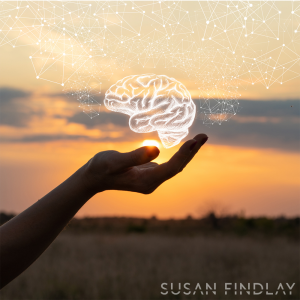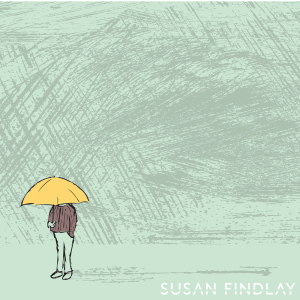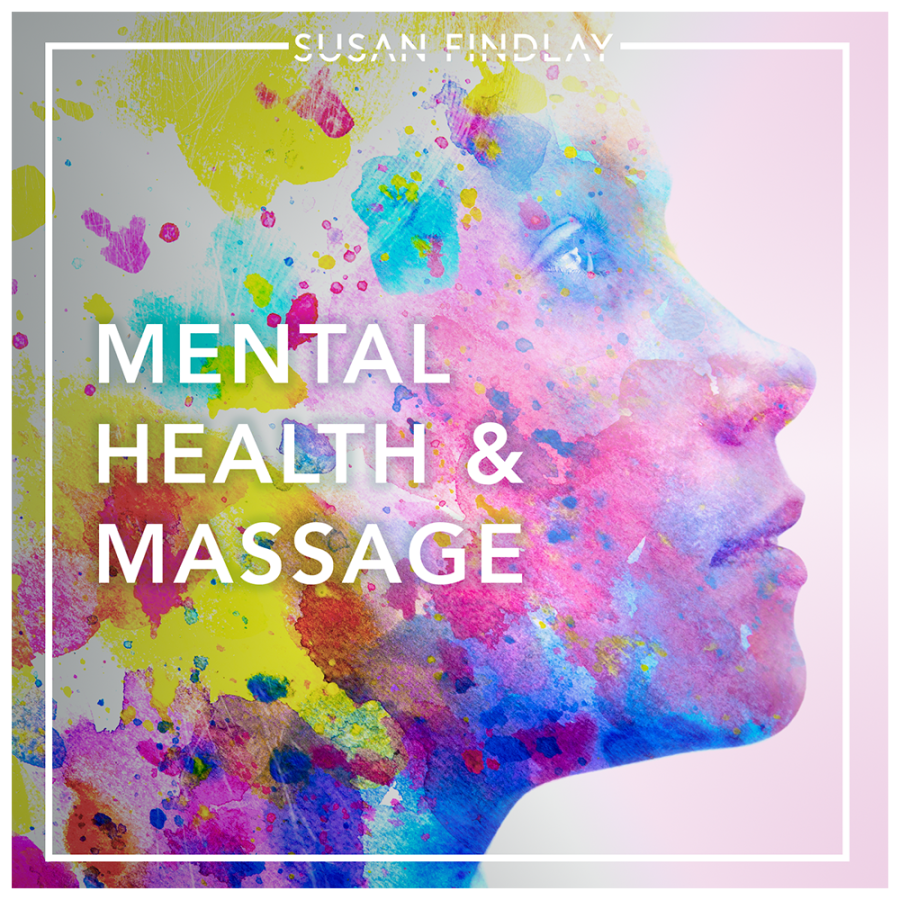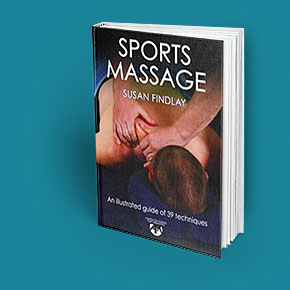Most people associate massage with the physical benefits it can bring, and rightly so, as there are many! However, our bodies are incredibly complex; our mental health can affect our physical health and vice versa. Massage is not just good for us on a physical level, it also has myriad benefits for our mental wellbeing. In this article, I will detail some of these, and explain how stored trauma in the body can be responsible for a wide range of health conditions, from depression to anxiety. I will also explain how massage can be used as a powerful therapeutic tool to deal with the underlying root cause of some of these conditions.
Our bodies are not just solitary organs, muscles, and nerves with one purpose. Instead, they are more like a sophisticated machine, with parts that interplay and affect one another. If one part of a machine is not functioning correctly, this affects the running of it as a whole. The human body is no different; malfunctions in our physical state can affect our mental state, and malfunctions in our mental state can manifest in our physical being.
Over the course of evolution, our bodies have developed responses to threats; first, we become anxious about something, then we either fight or run and finally, we freeze. This freeze response is especially common in small mammals and children. Even though we have developed civilisations and no longer are exposed to the wild, we are still exposed to stress and this still elicits a response from our nervous system.
Prolonged exposure to stressful or traumatic situations such can cause Post Traumatic Stress Disorder. It is important to note that whilst extreme situations such as childhood abuse or the death of a loved one can cause this, trauma is subjective and can be caused by a variety of things. A key feature in PTSD is hyperactivity of the sympathetic nervous system, which deals with our “fight or flight” response (1); this causes sufferers to feel like they are repeating the same traumatic experience even years after the event. This can be triggered by things we subconsciously associate with the experience.
PTSD is thought to be the cause of many health conditions such as depression, anxiety, self-harm, insomnia, disassociation, lowered immune system, and addiction. Massage has been investigated as a potential treatment method for this condition (2) and is shown lower concentrations of stress hormones in children suffering from this condition (3). Massage is also suggested as helping the mind-body connection in people who are suffering from disassociation (4), and can allow them to develop a more coherent sense of self (5).
 World-renowned author and trauma specialist Bessel A van der Kolk calls PTSD “intense emotions at the time of trauma initiating a long-term conditional response” (6), which means that until we correctly process the energy of trauma, then it can remain in our bodies. He states that the hypervigilance resulting from trauma can prevent people from forming meaningful connections with others, as they are constantly on their guard. He proposed that massage, amongst other things, may be a way in which humans can form new connections with others and process this past trauma. It is not simply enough to attempt to treat a physical bodily response by approaching it purely from a mental standpoint.
World-renowned author and trauma specialist Bessel A van der Kolk calls PTSD “intense emotions at the time of trauma initiating a long-term conditional response” (6), which means that until we correctly process the energy of trauma, then it can remain in our bodies. He states that the hypervigilance resulting from trauma can prevent people from forming meaningful connections with others, as they are constantly on their guard. He proposed that massage, amongst other things, may be a way in which humans can form new connections with others and process this past trauma. It is not simply enough to attempt to treat a physical bodily response by approaching it purely from a mental standpoint.
Peter Levine (PhD), a respected psychotherapist and author who has studied trauma extensively and is the father of Somatic Experiencing; which is a form of therapy that aims to reduce the effects of PTSD focussing on the client’s body sensations. Levine observed that gazelles after being chased by cheetahs did not appear to be traumatised, despite the near-death experience. He proposed that this was due to them shaking afterward; this enabled their nervous systems to finish cycling through their threat response system. He states that humans often do not complete this cycle; this leads to the energy being trapped in the nervous system and can result in both physical and mental health problems. He believes that by taking a body-orientated approach (including massage) through Somatic Experiencing rather than just addressing the mental symptoms we can allow the mind to heal in the same way that a broken bone would mend itself (7).
Stephen Porges is a university professor who studied the effect that trauma and threat have on our nervous systems. He found that the “freeze” response is located in the dorsal vagal complex, which is the least evolved part of our brains. As previously mentioned, when threat responses do not get processed correctly, they become trapped and can dysregulate our nervous systems, and cause us to revert back to this state. By stimulating the vagal nerve, it can help us to process this traumatic energy and regulate the nervous system, freeing sufferers of the symptoms (8). Independent research has shown that massage stimulates this nerve; reflexology is shown to be effective (9), as has massaging the carotid sinus, which is located on the right of the throat (10).
This de-stressing effect is also thought to be why massage is an effective treatment for anxiety. One study found that reflexology was effective at reducing this in patients who had received heart-surgery (11). Another group of researchers in Japan found that facial massage reduced anxiety and also boosted the receiver’s overall mood status (12). They proposed that the massage worked by activating the sympathetic nervous system. These findings add credence to Porges’ theory.
 Depression is a complex illness with many subcategories and differing symptoms for each sufferer. As such, there are many different therapies and medicines used in its treatment. Massage is one of these and has been proven to reduce symptoms in a variety of settings. One study found that it reduced post-natal depression (13), others have stated that it can reduce symptoms in those suffering from Chronic Fatigue Syndrome (14) and Fibromyalgia (15).
Depression is a complex illness with many subcategories and differing symptoms for each sufferer. As such, there are many different therapies and medicines used in its treatment. Massage is one of these and has been proven to reduce symptoms in a variety of settings. One study found that it reduced post-natal depression (13), others have stated that it can reduce symptoms in those suffering from Chronic Fatigue Syndrome (14) and Fibromyalgia (15).
Massage can also help us with one of the most basic human needs; sleep. Sleep deprivation can lead to a lowered immune system, weight gain, depression, anxiety, diabetes risk, and heart disease (16). Massage has been shown to improve sleep quality, reduce depression, and increase serotonin levels in one study on the elderly (17). Another study also found that massage increases both dopamine and serotonin levels (18); these can help us feel calm and could contribute to increased quality and ease of falling asleep.
To conclude, many mental health conditions, whether they arise from past trauma, or a chemical imbalance in the brain, have one thing in common; they cause the sufferer to disconnect from the world and the people within it. Massage, in fact, any form of physical touch, offers a reconnection that can be immensely powerful for those suffering from mental health conditions. I believe that by taking a holistic approach to treat the whole body through massage we can address not just the symptoms, but the causes of many mental health conditions.
References
1. Sherin, Jonathan E, and Charles B Nemeroff. “Post-traumatic stress disorder: the neurobiological impact of psychological trauma.” Dialogues in clinical neuroscience vol. 13,3 (2011): 263-78.
2. Rich, G.J. “Massage Therapy For PTSD, Trauma, And Anxiety”. RUDN Journal Of Psychology And Pedagogics, no. 3, 2013, pp. 60-66. Peoples’ Friendship University Of Russia, doi:10.22363/2313-1683-2013-3-60-66. Accessed 25 Aug 2020.
3. ield, T. (1995). Massage therapy for infants and children. Journal of Developmental and Behavioral Pediatrics, 16(2), 105–111. https://doi.org/10.1097/00004703-199504000-00008
4. Price CJ, Donovan D, Wells E, Rue T. Mindful awareness in body-oriented therapy as an adjunct to women’s substance use disorder treatment: A pilot feasibility study. Journal of Substance Abuse Treatment. 2012; 94–107.
5. Price, C. (2004). Characteristics of women seeking bodywork as an adjunct to psychotherapy during recovery from childhood sexual abuse. Journal of Bodywork and Movement Therapies, 8(1): 35-42.
6. Kolk, Bessel. The Body Keeps The Score Brain, Mind. Penguin Books, 2015, p. 1.
7. Levine, Peter A. Waking The Tiger. North Atlantic Books, 1997.
8. Porges, Stephen W. The Polyvagal Theory. W. W. Norton & Co., 2011.
9. Lu WA, Chen GY, Kuo CD. Foot reflexology can increase vagal modulation, decrease sympathetic modulation, and lower blood pressure in healthy subjects and patients with coronary artery disease. Altern Ther Health Med. 2011;17(4):8-14.
10. Field, Tiffany et al. “Potential underlying mechanisms for greater weight gain in massaged preterm infants.” Infant behavior & development vol. 34,3 (2011): 383-9. doi:10.1016/j.infbeh.2010.12.001
11. Bagheri-Nesami, Masoumeh et al. “The Effects Of Foot Reflexology Massage On Anxiety In Patients Following Coronary Artery Bypass Graft Surgery: A Randomized Controlled Trial”. Complementary Therapies In Clinical Practice, vol 20, no. 1, 2014, pp. 42-47. Elsevier BV, doi:10.1016/j.ctcp.2013.10.006. Accessed 25 Aug 2020.
12. Hatayama, Tomoko et al. “The Facial Massage Reduced Anxiety And Negative Mood Status, And Increased Sympathetic Nervous Activity”. Biomedical Research, vol 29, no. 6, 2008, pp. 317-320. Biomedical Research Press, doi:10.2220/biomedres.29.317. Accessed 25 Aug 2020.
13. Field, Tiffany et al. “Yoga And Massage Therapy Reduce Prenatal Depression And Prematurity”. Journal Of Bodywork And Movement Therapies, vol 16, no. 2, 2012, pp. 204-209. Elsevier BV, doi:10.1016/j.jbmt.2011.08.002. Accessed 25 Aug 2020.
14. Field, Tiffany M. et al. “Massage Therapy Effects On Depression And Somatic Symptoms In Chronic Fatigue Syndrome”. Journal Of Chronic Fatigue Syndrome, vol 3, no. 3, 1997, pp. 43-51. The Haworth Press, doi:10.1300/j092v03n03_03. Accessed 25 Aug 2020.
15. Castro-Sánchez, Adelaida María et al. “Benefits Of Massage-Myofascial Release Therapy On Pain, Anxiety, Quality Of Sleep, Depression, And Quality Of Life In Patients With Fibromyalgia”. Evidence-Based Complementary And Alternative Medicine, vol 2011, 2011, pp. 1-9. Hindawi Limited, doi:10.1155/2011/561753. Accessed 25 Aug 2020.
16. “Why Lack Of Sleep Is Bad For Your Health”. Nhs.Uk, 2020, https://www.nhs.uk/live-well/sleep-and-tiredness/why-lack-of-sleep-is-bad-for-your-health/.
17. Song, Rye Hun, and Do Hwan Kim. “The Effects Of Foot Reflexion Massage On Sleep Disturbance, Depression Disorder, And The Physiological Index Of The Elderly”. Journal Of Korean Academy Of Nursing, vol 36, no. 1, 2006, p. 15. Korean Society Of Nursing Science, doi:10.4040/jkan.2006.36.1.15. Accessed 25 Aug 2020.
18. FIELD, TIFFANY et al. “CORTISOL DECREASES AND SEROTONIN AND DOPAMINE INCREASE FOLLOWING MASSAGE THERAPY”. International Journal Of Neuroscience, vol 115, no. 10, 2005, pp. 1397-1413. Informa UK Limited, doi:10.1080/00207450590956459. Accessed 25 Aug 2020.

